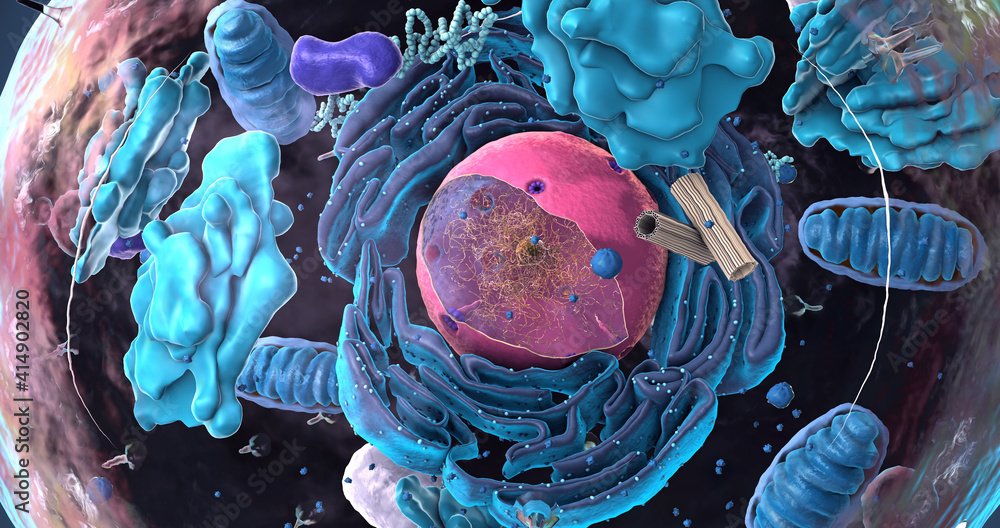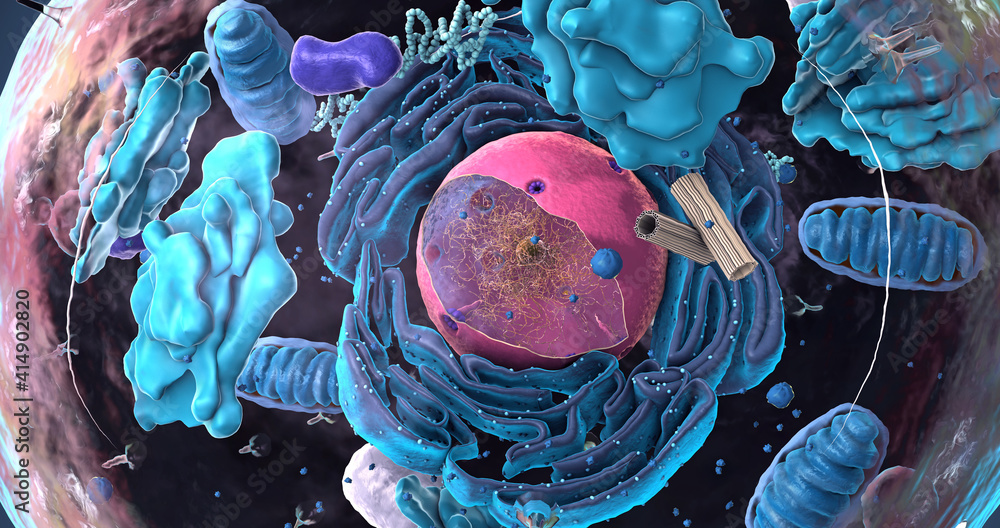In this article, you will discover the fascinating concept of unlocking the power within your body through mitochondrial optimization. Mitochondria, the powerhouses of our cells, play a crucial role in energy production and overall health. By understanding how to optimize these tiny organelles, you can unleash a multitude of benefits for your body and enhance your well-being. Join us as we delve into the world of mitochondrial optimization and explore the incredible potential it holds for optimizing your health and vitality.
Understanding Mitochondria
What are mitochondria?
Mitochondria are often referred to as the powerhouses of our cells. They are small, bean-shaped organelles that exist within the cells of our bodies. These tiny structures play a crucial role in cellular function and energy production, making them essential for overall health and wellbeing.
Mitochondria are unique in that they have their own DNA, separate from the nuclear DNA found in the cell nucleus. This mitochondrial DNA (mtDNA) contains genes that are responsible for the production of various proteins and enzymes essential for mitochondrial function. It is this intricate interplay of proteins and enzymes within the mitochondria that allows them to carry out their vital tasks.
The role of mitochondria in cellular function and energy production
The primary role of mitochondria is to generate adenosine triphosphate (ATP), which serves as the energy currency of our cells. Through a process called oxidative phosphorylation, mitochondria convert the energy stored in nutrients, such as glucose and fatty acids, into ATP. This ATP is then used by our cells to carry out numerous biological processes, including muscle contraction, nerve transmission, and cellular maintenance.
In addition to energy production, mitochondria also play critical roles in other cellular functions. They are involved in regulating calcium levels within cells, controlling cell death (apoptosis), and producing heat to help maintain body temperature. Moreover, mitochondria are integral to the synthesis of important molecules such as heme, which is a key component of hemoglobin.
Mitochondrial Dysfunction
Causes of mitochondrial dysfunction
Mitochondrial dysfunction can arise from a variety of factors, both genetic and environmental. Genetic mutations in either the nuclear DNA or mtDNA can disrupt the normal functioning of mitochondria. These mutations can be inherited or occur spontaneously, leading to various mitochondrial disorders.
Environmental factors can also contribute to the development of mitochondrial dysfunction. Exposure to toxins, such as heavy metals and certain pharmaceutical drugs, can impair mitochondrial function. Additionally, chronic conditions like diabetes, obesity, and autoimmune diseases have been linked to mitochondrial dysfunction.
Impacts of mitochondrial dysfunction on overall health
Mitochondrial dysfunction can have far-reaching effects on overall health. As the primary energy producers in our body, impaired mitochondria can result in low energy levels and fatigue. This can negatively impact physical performance, cognitive function, and overall quality of life.
Furthermore, mitochondrial dysfunction has been associated with a range of chronic diseases, including neurodegenerative disorders (such as Alzheimer’s and Parkinson’s disease), cardiovascular diseases, metabolic disorders, and even cancer. Dysfunction in mitochondria can also accelerate the aging process, leading to premature aging and an increased risk of age-related diseases.

This image is property of Amazon.com.
Identifying Mitochondrial Optimization
Signs of mitochondrial optimization
Optimized mitochondrial function can manifest in various ways throughout the body. Some indicators of mitochondrial optimization include sustained energy throughout the day, improved exercise performance and recovery, enhanced cognitive function, and better overall endurance. Additionally, individuals with optimized mitochondria may experience fewer symptoms of chronic diseases or metabolic disorders.
It’s important to note that these signs may vary from person to person and can be influenced by individual factors such as genetics, lifestyle, and overall health status. Regular self-assessment and communication with healthcare professionals are key to understanding the specific signs of mitochondrial optimization for each individual.
Diagnostic tests for assessing mitochondrial function
There are several diagnostic tests available to assess mitochondrial function and identify potential optimization opportunities. These tests range from blood markers and imaging techniques to genetic testing. Blood tests can measure levels of certain enzymes and metabolites that reflect mitochondrial function, while imaging techniques like PET scans can provide insights into the activity and health of mitochondria in specific organs or tissues.
Genetic testing can help identify genetic mutations associated with mitochondrial dysfunction and guide treatment options. These tests may involve analyzing both nuclear DNA and mtDNA to provide a comprehensive understanding of mitochondrial function at the genetic level.
It is important to consult with healthcare professionals to determine the most appropriate diagnostic tests based on individual circumstances and health concerns.
Dietary Approaches to Mitochondrial Optimization
The role of macronutrients in supporting mitochondrial health
A well-balanced diet plays a crucial role in supporting mitochondrial health and optimization. Macronutrients, including carbohydrates, fats, and proteins, all contribute to the energy production and overall functioning of mitochondria.
Carbohydrates are the primary source of fuel for mitochondria, as they are broken down into glucose and utilized in the process of ATP production. Healthy fats, such as omega-3 fatty acids, are also important for mitochondrial function, as they support the formation of the cell membrane and provide the necessary building blocks for certain enzymes involved in energy production.
Proteins are essential for the synthesis of enzymes required for mitochondrial function. They also contribute to the repair and maintenance of mitochondria. A diet rich in lean proteins, such as poultry, fish, and legumes, can help optimize mitochondrial health.
Specific foods and nutrients that promote mitochondrial function
Certain foods and nutrients have been shown to promote mitochondrial health and optimization. These include:
-
Antioxidant-rich foods: Berries, dark leafy greens, and colorful vegetables are packed with antioxidants that help protect mitochondria from oxidative stress, a common cause of mitochondrial dysfunction.
-
Coenzyme Q10 (CoQ10): Found in foods like fish, meat, and nuts, CoQ10 is an essential molecule involved in ATP production. Supplementation or dietary intake of CoQ10 can support mitochondrial function.
-
Omega-3 fatty acids: Found in fatty fish, flaxseeds, and chia seeds, omega-3 fatty acids have anti-inflammatory properties and support mitochondrial health.
-
B vitamins: B vitamins, particularly B1 (thiamine), B2 (riboflavin), and B3 (niacin), are essential for energy production and mitochondrial function. Foods rich in B vitamins include whole grains, legumes, nuts, and seeds.
-
Magnesium: This essential mineral is involved in numerous enzymatic reactions, including ATP production. Leafy greens, nuts, and whole grains are excellent sources of magnesium.
Incorporating these nutrient-dense foods into your diet can provide the necessary building blocks for optimal mitochondrial function.

This image is property of Amazon.com.
Exercise and Mitochondrial Optimization
The impact of different exercise modalities on mitochondrial health
Exercise is a powerful tool for optimizing mitochondrial function. Different exercise modalities can have varying effects on mitochondrial health. For example, aerobic exercises like running, cycling, and swimming can enhance mitochondrial biogenesis, the process by which new mitochondria are created.
Resistance training, on the other hand, promotes mitochondrial health by increasing the capacity of existing mitochondria to produce ATP. High-intensity interval training (HIIT) has also been shown to improve mitochondrial function by challenging the energy production pathways within mitochondria.
Incorporating a combination of aerobic exercise, resistance training, and HIIT into your fitness routine can provide comprehensive support for optimal mitochondrial function.
Optimal exercise duration and intensity for mitochondrial optimization
The duration and intensity of exercise play significant roles in mitochondrial optimization. Moderate-intensity aerobic exercises, performed for at least 150 minutes per week, have been shown to enhance mitochondrial function and overall health.
In terms of intensity, a mix of low to moderate intensity and high-intensity workouts can be beneficial. High-intensity workouts, such as HIIT sessions, should be performed 1-2 times per week to challenge and stimulate mitochondrial adaptations. However, it’s essential to listen to your body and gradually progress the intensity and duration of exercise to avoid overexertion.
Regular exercise, tailored to individual fitness levels and goals, can yield significant benefits for mitochondrial optimization.
Pharmacological Interventions for Mitochondrial Optimization
Overview of drugs and supplements that enhance mitochondrial function
In addition to lifestyle modifications, certain drugs and supplements have been studied for their potential to enhance mitochondrial function and support optimization. These interventions aim to target specific mitochondrial pathways and mechanisms.
Examples of pharmacological interventions include:
-
Nicotinamide riboside (NR) and nicotinamide adenine dinucleotide (NAD+): These compounds play a crucial role in mitochondrial energy metabolism and have been shown to enhance mitochondrial function and longevity.
-
Metformin: Primarily used to treat diabetes, metformin has also shown potential in improving mitochondrial function by increasing AMP-activated protein kinase (AMPK) activity and reducing oxidative stress.
-
Resveratrol: A natural compound found in grapes and red wine, resveratrol has been shown to activate sirtuins, a group of proteins involved in regulating mitochondrial function and longevity.
-
CoQ10 supplementation: Along with its dietary intake, CoQ10 supplementation can support mitochondrial function by providing an additional source of this crucial molecule.
Potential side effects and risks associated with pharmacological interventions
It is important to note that pharmacological interventions for mitochondrial optimization may have potential side effects and risks. These interventions should always be used under the guidance of healthcare professionals, and their suitability should be determined based on individual health conditions and medication interactions.
Side effects and risks can vary depending on the specific intervention being used. For example, some individuals may experience gastrointestinal symptoms or liver toxicity with certain supplements or medications. Close monitoring, dosage adjustments, and regular communication with healthcare professionals are essential when considering pharmacological interventions.

This image is property of Amazon.com.
Lifestyle Factors for Mitochondrial Optimization
The influence of sleep and stress on mitochondrial health
Sleep and stress have a significant impact on mitochondrial health. A lack of quality sleep can disrupt the normal functioning of mitochondria, leading to decreased energy production and increased oxidative stress. Chronic sleep deprivation has been shown to impair mitochondrial function and is associated with various health conditions.
Similarly, chronic stress can adversely affect mitochondrial health. High levels of stress hormone cortisol can lead to mitochondrial damage and dysfunction. Managing stress through relaxation techniques, mindfulness practices, and engaging in activities that promote emotional well-being can support optimal mitochondrial function.
Strategies for improving sleep quality and managing stress levels
To optimize mitochondrial health, incorporating strategies to improve sleep quality and manage stress levels is crucial. Here are some strategies that can help:
-
Maintain a regular sleep schedule: Going to bed and waking up at consistent times can help regulate the body’s sleep-wake cycle and promote better sleep quality.
-
Create a sleep-friendly environment: Ensure that your sleep environment is dark, quiet, and comfortable. Remove electronic devices from the bedroom and establish a calming bedtime routine.
-
Practice stress management techniques: Incorporate stress-reducing activities into your daily routine, such as meditation, deep breathing exercises, yoga, or engaging in hobbies and activities that bring joy and relaxation.
-
Prioritize self-care: Taking care of yourself physically, emotionally, and mentally is essential for overall health and mitochondrial optimization. This may involve practicing self-care activities like massage, acupuncture, and spending time in nature.
By implementing these strategies, you can support healthy sleep patterns and manage stress levels, ultimately promoting optimal mitochondrial function.
Nutritional Supplements for Mitochondrial Optimization
Key mitochondrial-supporting supplements
Supplements can provide additional support for mitochondrial optimization, especially when dietary intake may be insufficient. Here are some key supplements that have been shown to support mitochondrial health:
-
Acetyl-L-carnitine (ALCAR): ALCAR enhances mitochondrial energy production by facilitating the transport of fatty acids into mitochondria. It has also demonstrated neuroprotective properties.
-
Alpha-lipoic acid (ALA): ALA acts as a potent antioxidant and has the ability to regenerate other antioxidants. It supports mitochondrial health by reducing oxidative stress and improving mitochondrial function.
-
PQQ (Pyrroloquinoline quinone): PQQ is a powerful antioxidant that promotes mitochondrial biogenesis and supports energy production.
-
Resveratrol: As mentioned earlier, resveratrol has been shown to activate sirtuins, which can enhance mitochondrial function and longevity.
Dosage and safety considerations for supplementation
Dosage recommendations for mitochondrial-supporting supplements can vary depending on the specific supplement and individual needs. It is important to consult with a healthcare professional or qualified nutritionist to determine the appropriate dosage based on individual circumstances.
Additionally, it is crucial to consider safety considerations when using supplements. Some supplements may interact with medications or have potential side effects. Healthcare professionals can provide guidance on potential drug interactions and monitor for any adverse reactions.
Remember that supplements should be used to complement a healthy diet and lifestyle, rather than as a substitute for them. A well-rounded approach to mitochondrial optimization involves combining supplements with dietary modifications, exercise, and stress management techniques.

This image is property of Amazon.com.
Emerging Technologies for Mitochondrial Optimization
Overview of innovative therapies and technologies
Advancements in technology have paved the way for innovative therapies and technologies aimed at optimizing mitochondrial health. These emerging technologies hold promise for improving mitochondrial function, enhancing energy production, and addressing specific conditions associated with mitochondrial dysfunction.
Some of these emerging technologies include:
-
Photobiomodulation: Also known as low-level laser therapy (LLLT), this non-invasive technique involves using light energy to stimulate mitochondria and enhance ATP production.
-
Mitochondrial replacement therapy (MRT): This groundbreaking technique involves replacing defective mtDNA with healthy mtDNA from a donor, potentially preventing the transmission of mitochondrial disorders.
-
Gene therapy: Gene therapy approaches aim to correct genetic mutations associated with mitochondrial dysfunction. By targeting specific genes, researchers hope to restore mitochondrial function and optimize health.
Promising research and future possibilities
Researchers continue to explore and unravel the intricacies of mitochondrial function, and new findings emerge regularly. The future holds exciting possibilities for optimizing mitochondrial health through innovative therapies and interventions.
Areas of promising research include:
-
Mitophagy: This process involves the removal of damaged mitochondria by the cell’s own recycling mechanisms. Enhancing mitophagy could improve overall mitochondrial quality and function.
-
Mitochondrial-targeted antioxidants: Researchers are exploring the use of antioxidants specifically designed to target mitochondria and mitigate oxidative stress, potentially improving mitochondrial health.
-
Personalized medicine: As our understanding of mitochondrial genetics and function improves, personalized approaches to treatment and optimization become a reality. Tailoring interventions based on an individual’s unique genetic makeup holds promise for maximizing mitochondrial optimization.
With ongoing research and advancements, we are on the cusp of unlocking the full potential of our mitochondria and enhancing our overall health and wellbeing.
Integrative Approaches to Mitochondrial Optimization
Combining dietary, exercise, lifestyle, and pharmacological interventions
The optimization of mitochondrial function is a complex process that requires a multifaceted approach. Integrating various interventions can provide comprehensive support and maximize the potential for mitochondrial optimization.
By combining a well-balanced diet rich in macronutrients and mitochondria-supporting foods, regular exercise incorporating different modalities, stress management techniques, and appropriate pharmacological interventions, individuals can benefit from synergistic effects that promote optimal mitochondrial health.
Holistic approaches for comprehensive mitochondrial support
In addition to individual interventions, holistic approaches that consider the interconnectedness of various aspects of health can provide comprehensive mitochondrial support. These approaches encompass not only physical health but also mental and emotional wellbeing.
Holistic strategies for mitochondrial optimization may include:
-
Mind-body practices: Engaging in practices such as meditation, yoga, tai chi, and deep breathing exercises can help reduce stress, improve mental clarity, and support overall mitochondrial health.
-
Environmental considerations: Reducing exposure to environmental toxins, such as air pollution and chemicals, can minimize the burden on mitochondria and promote optimal function.
-
Creating a supportive lifestyle: Prioritizing a healthy work-life balance, fostering meaningful social connections, maintaining a positive mindset, and engaging in activities that bring joy can contribute to overall mitochondrial optimization.
By adopting a holistic approach and addressing all aspects of health, individuals can create an optimal environment for mitochondrial function and unlock the full potential of their mitochondria.
In conclusion, understanding mitochondria and optimizing their function is essential for overall health and wellbeing. By recognizing the role of mitochondria in cellular function and energy production, identifying causes and impacts of mitochondrial dysfunction, implementing dietary and lifestyle modifications, utilizing appropriate pharmacological interventions and exploring emerging technologies, individuals can achieve comprehensive mitochondrial support. By combining various interventions and adopting a holistic approach, individuals can unlock the power within their mitochondria and optimize their health at a cellular level.

This image is property of www.lethealthbeyourguide.com.

